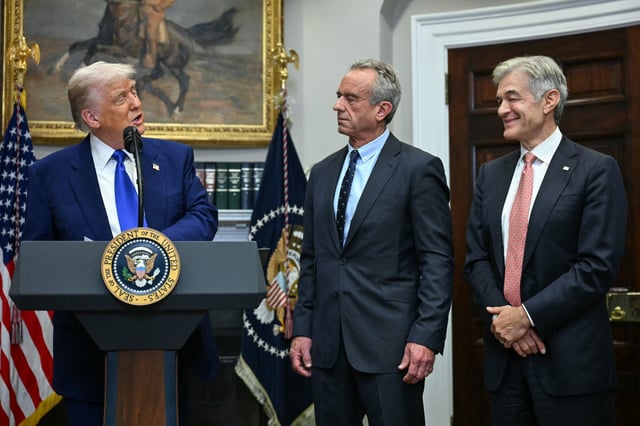Overview
- President Trump signed an executive order to tie U.S. prescription drug prices to the lowest rates paid in comparable foreign countries using a Most-Favored-Nation pricing model.
- Health and Human Services Secretary Robert F. Kennedy Jr. has 30 days to propose target prices, with voluntary compliance from pharmaceutical companies expected before enforcement mechanisms are detailed.
- Legal experts question the president's authority to enforce broad drug price reductions without congressional action, predicting imminent court challenges.
- Critics warn that mandated price cuts could hinder pharmaceutical innovation and research, while the lack of implementation details raises concerns about the order's feasibility.
- The announcement has drawn bipartisan reactions, with support for addressing high drug prices but skepticism about the executive order’s effectiveness and legality.
